Introduction
Generative AI is revolutionizing the customer service industry. It's an artificial intelligence system that can create content independently, from text and dialogue to entire narratives.
With sophisticated algorithms, it can analyze vast amounts of data, understand patterns, and generate human-like conversation, making it an ideal tool for customer service.
There are different types of Generative AI relevant to customer service, such as chatbots, text generation, and sentiment analysis. Chatbots are AI-powered virtual assistants that engage in customer conversations through messaging platforms or websites.
They can understand customer inquiries, provide relevant information, and even assist in transactions. Text generation, on the other hand, can generate responses, FAQs, and personalized messages automatically, while sentiment analysis can understand customer emotions from text communication.
In this blog, we'll explore the potential of Generative AI for customer service, its advantages, and how to implement it in your customer service strategy.
What is Generative AI?
Generative AI, in its simplest form, can be seen as an artificial intelligence system that has the power to create content on its own.
It can generate text, dialogue, and even entire narratives without human intervention. It's like having a virtual assistant who brings new ideas and crafts compelling responses without missing a beat.
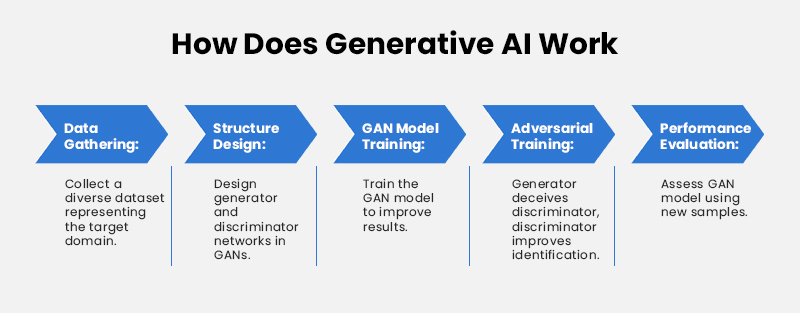
Using sophisticated algorithms, Generative AI can analyze vast amounts of data and understand patterns, allowing it to mimic human-like conversation and generate novel and relevant content.
Different Types of Generative AI Relevant to Customer Service
There are different types of generative AI for customer services, like:
Text Generation
Generative AI is also used to generate responses, FAQs, and personalized messages automatically.
Businesses can train the system to understand their brand tone and language, enabling it to create responses that align with their style and values.
This streamlines customer interactions by providing timely, accurate, and contextually appropriate replies, saving customers and support teams time.
Chatbots
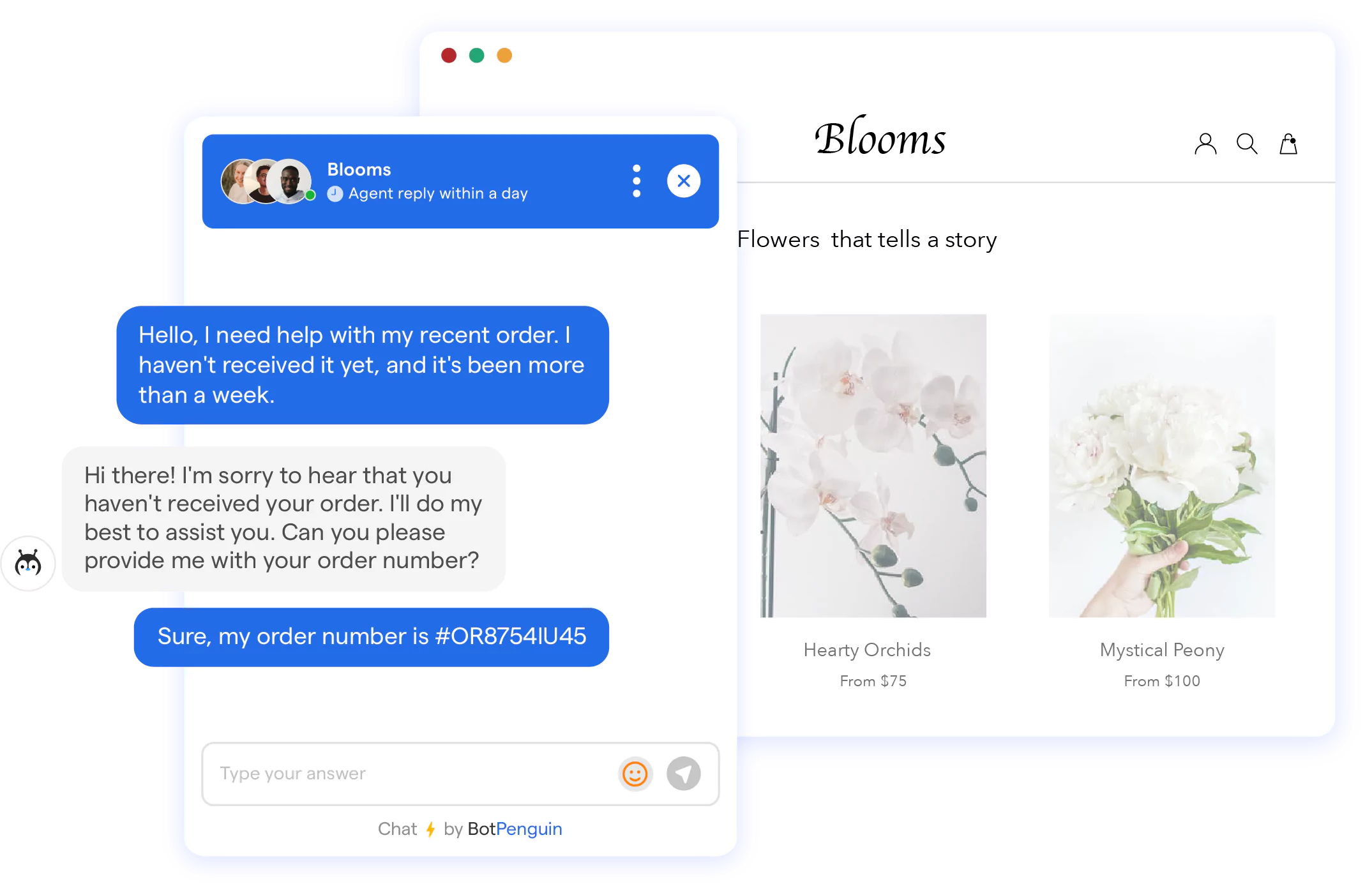
These AI-powered virtual assistants have become increasingly popular in customer service. Chatbots engage in conversations with customers through messaging platforms or websites.
Using Generative AI for customer service, chatbots can understand customer inquiries, provide relevant information, and even assist in transactions.
Chatbots like BotPenguin offer instant support and minimize the need for human intervention. Thus providing round-the-clock service and reducing wait times.
Sentiment Analysis
Understanding customer emotions from text communication is another key application of Generative AI for customer service.
By analyzing the sentiment behind customer messages, businesses can gauge customer satisfaction, identify potential issues, and take proactive steps to address concerns.
Generative AI algorithms can recognize and interpret emotional cues, allowing companies to respond empathetically and personalize customer service interactions.
Advantages of Using Generative AI in Customer Service
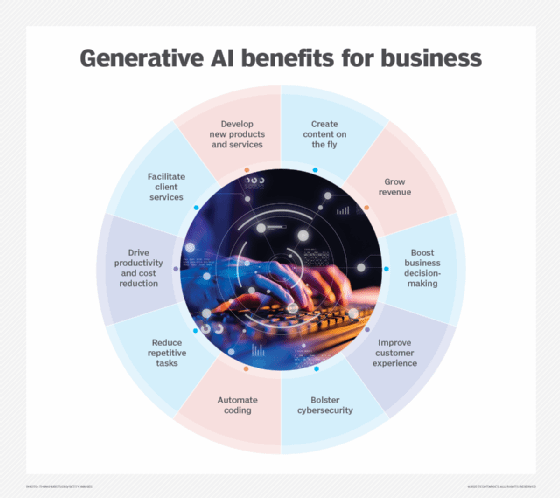
Adopting Generative AI for customer service brings significant advantages that enhance the overall customer experience, like:
- Firstly, Generative AI-powered chatbots and text generation systems eliminate the need for customers to wait on hold or in queues.
Thus providing instant and round-the-clock support. This enhances customer satisfaction and loyalty by offering timely and efficient assistance.
- Secondly, Generative AI for customer service enables businesses to scale their customer service operations without compromising quality.
With automated systems handling routine and repetitive tasks, human agents can focus on more complex and specialized issues, improving service quality and productivity.
- Moreover, Generative AI systems can learn and continuously improve. By analyzing customer interactions and feedback, these systems can adapt and refine their responses.
This ultimately delivers a personalized and tailored customer experience.
Next, we will cover how to transform customer service with Generative AI.
Transforming Customer Service with Generative AI
In the world of customer service, generative AI is a game-changer. It can completely transform the customer experience, revolutionizing how businesses interact with their clientele.
Let's explore five key ways that Generative AI for customer service is reshaping and setting new standards for accessibility, efficiency, and personalization.
24/7 Accessibility and Support
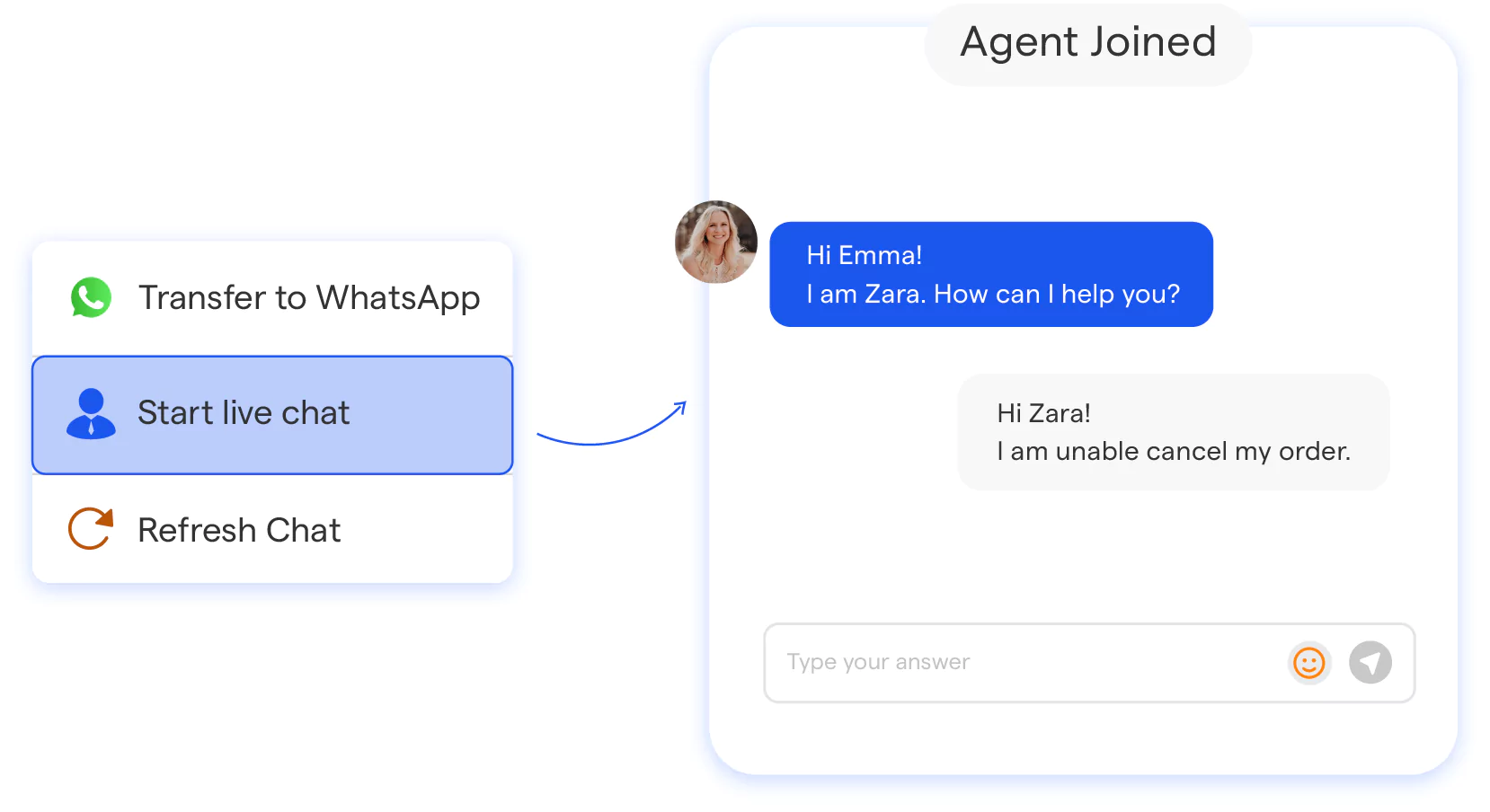
One of the most significant advantages of Generative AI for customer service is its ability to provide round-the-clock accessibility and support.
Unlike traditional customer service channels with limited operating hours, Generative AI-powered systems, such as chatbots, are always available. Customers can get assistance instantly, regardless of the time of day or their geographical location.
This 24/7 accessibility ensures that no customer is left hanging and enables businesses to meet the needs of a global customer base.
Improved Efficiency and Reduced Costs
Efficiency is a crucial aspect of customer service, and Generative AI excels in this area.
By automating routine tasks, such as answering frequently asked questions and providing standard information, Generative AI systems improve response time and simultaneously handle a larger volume of customer inquiries.
This efficiency reduces business costs, as fewer human agents are needed to handle routine support tasks.
Additionally, Generative AI for customer service handles multiple conversations simultaneously, eliminating wait times and improving overall service speed.
Personalized Interactions and Increased Customer Satisfaction
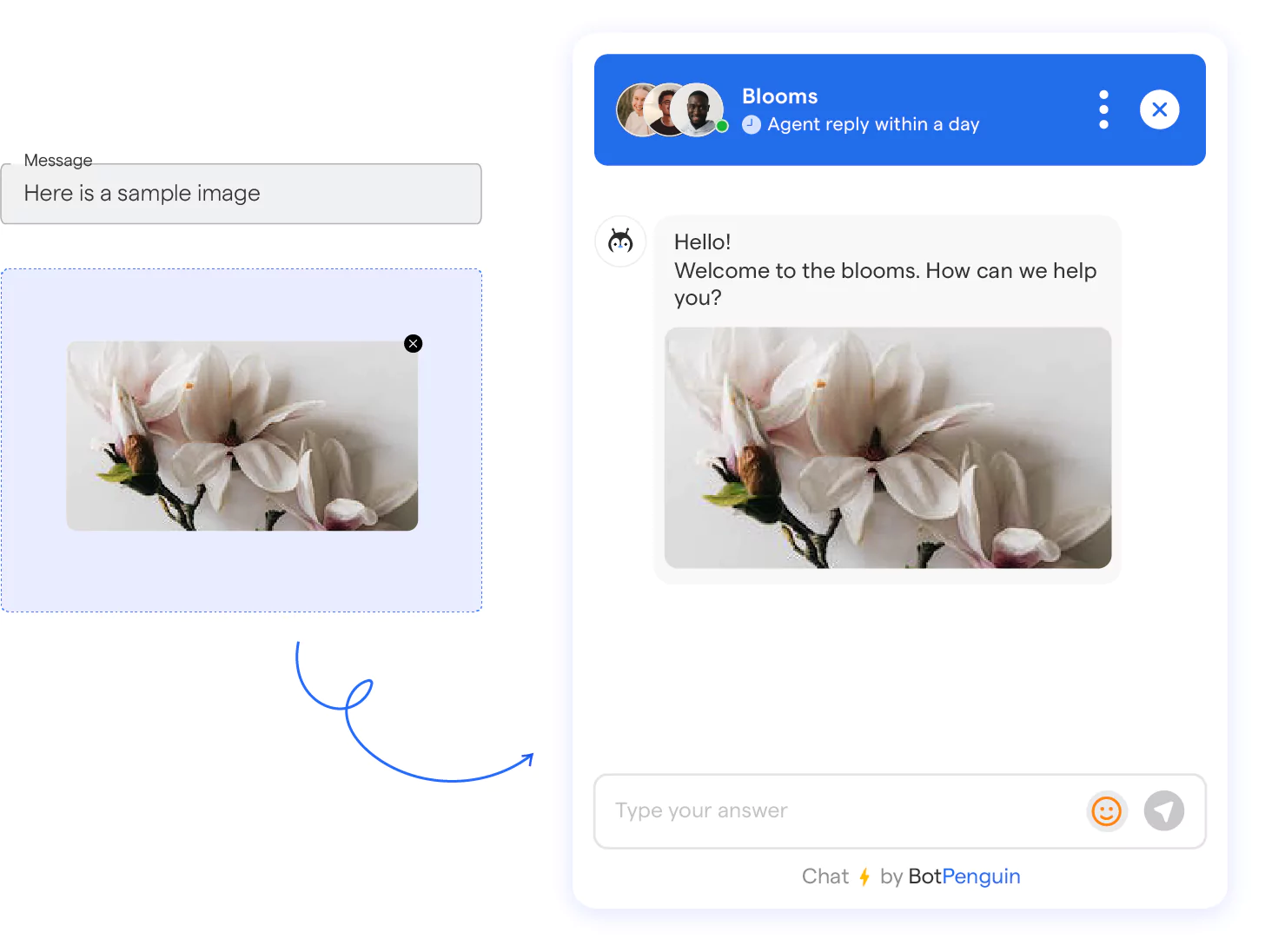
With Generative AI, businesses can deliver personalized interactions that cater to individual customer needs.
Generative AI systems can analyze customer data, preferences, and past interactions to tailor responses and recommendations. Personalization creates a sense of being understood and valued, enhancing customer satisfaction.
Whether remembering their preferences or suggesting relevant products or services, Generative AI-powered customer service offers a more personalized experience that fosters stronger customer relationships.
Proactive Assistance and Problem-Solving
Generative AI systems are not limited to reactive responses; they can be proactive problem solvers.
By analyzing customer data and behavior patterns, Generative AI can anticipate and address potential issues before they escalate.
For example, if a customer frequently encounters a particular problem, Generative AI-powered systems can provide preemptive troubleshooting information.
This proactive approach saves customers valuable time and showcases the business's commitment to excellent service.
Suggested Reading:
Top Generative AI Tools [2024]
Language Support and Accessibility
In an increasingly globalized world, language barriers pose a significant challenge for businesses in providing customer support.
However, Generative AI systems overcome this hurdle by offering multilingual support. With advanced language processing capabilities, these systems can understand and respond to customer inquiries in multiple languages.
This ensures businesses can serve diverse customer bases and overcome language barriers, further enhancing accessibility and inclusivity for all customers.
Next, we will cover how to implement Generative AI for customer service strategy.
Implementing Generative AI in Your Customer Service Strategy
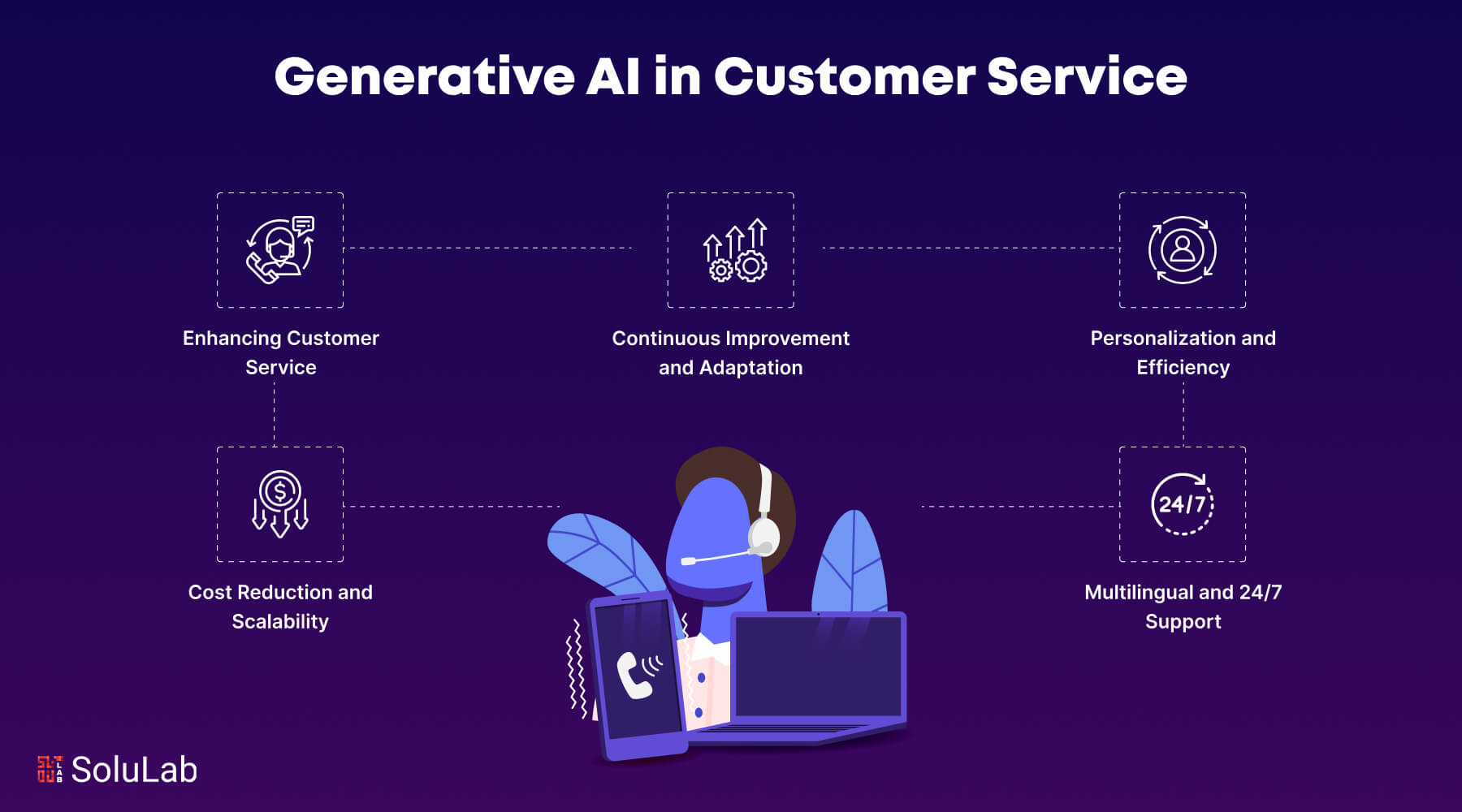
Integrating generative AI into your customer service strategy can have many potentials.
If you're considering implementing Generative AI in your customer service, here are four steps to guide you.
Identify your Goals and Challenges
Before implementing Generative AI for customer service, it's essential to understand your goals and challenges. Determine what specific outcomes you want to achieve with Generative AI in your customer service strategy.
Are you aiming to reduce response times, improve customer satisfaction, or enhance scalability? Also, assess your customer service team's challenges, such as long wait times or information gaps.
Identifying your goals and challenges will help you align Generative AI implementation with your specific needs.
Choose the Right Generative AI Solution
Selecting the right Generative AI for customer service is critical for successful implementation. Evaluate different options based on functionality, customization capabilities, and scalability.
Look for Generative AI systems that align with your business requirements and allow for seamless integration with your existing customer service infrastructure.
Consider natural language processing, sentiment analysis, and language support to ensure you choose a solution that meets your needs.
Integrate Generative AI Seamlessly
Integrating Generative AI into your customer service infrastructure should be seamless to minimize interruptions and ensure a smooth transition.
Collaborate with your IT team and the Generative AI solution provider to establish an implementation plan.
Determine how Generative AI will be incorporated into your existing customer service channels, such as chat platforms or messaging apps.
Test the integration and conduct thorough training to ensure a seamless customer and support agents experience.
Suggested Reading:
How Generative AI and ChatGPT Can Transform Key Industries?
Train and Monitor your Generative AI
It is crucial to train and monitor the system to optimize Generative AI performance. Train your Generative AI solution to understand your brand's tone, language, and specific customer service guidelines.
Provide it with ample data and examples to learn from and refine its responses over time. Regularly monitor the system's performance, review customer feedback, and identify areas for improvement.
Adjust and update the training data and parameters to ensure the Generative AI aligns with your evolving customer service requirements.
Next, we will address some concerns and ethical considerations regarding Generative AI for customer service.
Addressing Concerns and Ethical Considerations
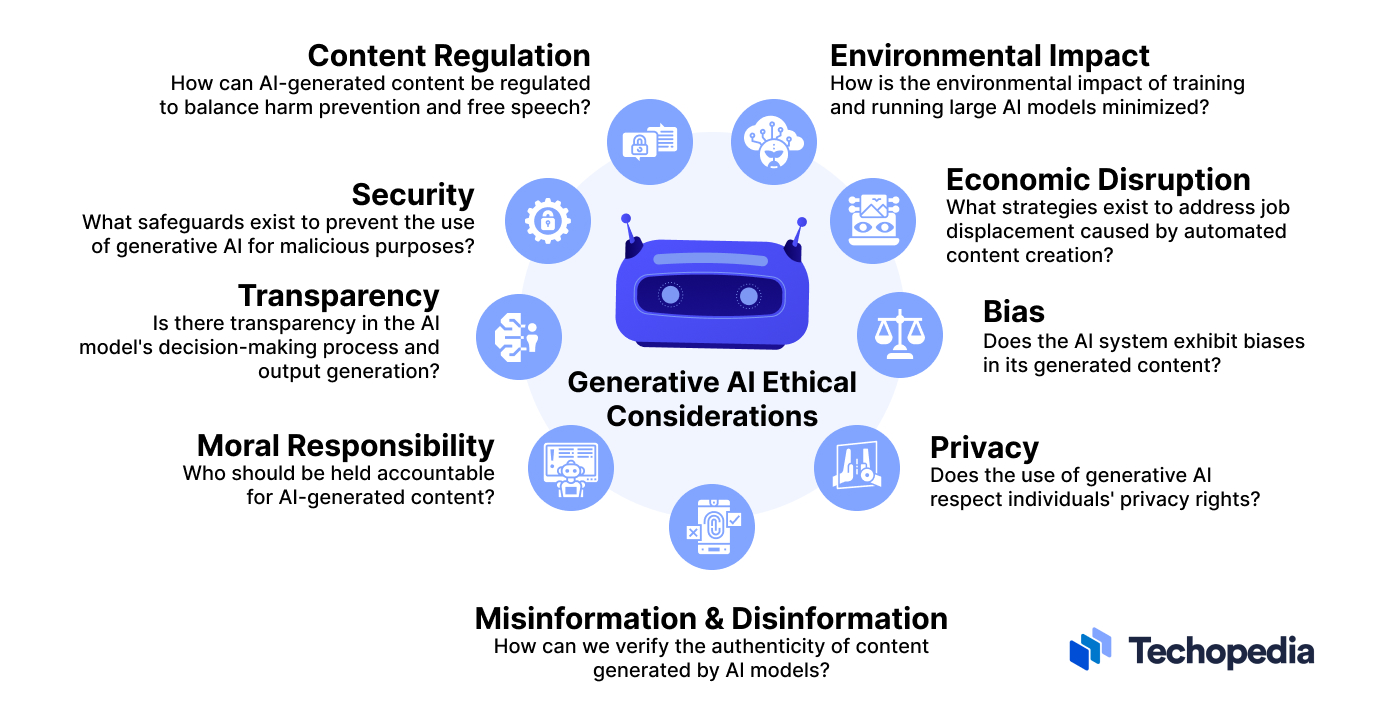
While Generative AI offers transformative benefits, it is essential to address the concerns and ethical considerations associated with its implementation in customer service.
- Transparency: Be transparent with customers about their interactions with Generative AI systems. Communicate when customers interact with an AI-powered system rather than a human agent.
This establishes trust and ensures customers understand the nature of the support they receive.
- Data privacy: Safeguard customer data and ensure compliance with privacy regulations. Implement data encryption, secure storage practices, and strict access controls to protect sensitive customer information.
Be transparent with customers about data usage and provide clear opt-out options.
- Human oversight: While Generative AI systems can handle many customer interactions, maintaining human oversight is crucial. Designate human agents to intervene when necessary, particularly during complex or sensitive customer issues.
Human involvement ensures empathy, judgment, and ethical decision-making during customer interactions.
- Bias and fairness: Monitor Generative AI systems to identify and mitigate biases. Train the system on diverse data sets to avoid skewed or unfair responses.
Review the system's outputs regularly for any signs of biased behavior and take corrective actions promptly.
By addressing these concerns and ethical considerations, you can ensure responsible and beneficial implementation of Generative AI in your customer service strategy.
Conclusion
Generative AI is a game-changer for customer service. It offers significant advantages, such as 24/7 accessibility, improved efficiency, reduced costs, personalized interactions, proactive assistance, and multilingual support.
However, it is essential to address concerns and ethical considerations, such as transparency, data privacy, human oversight, and bias.
To implement Generative AI in your customer service strategy, identify your goals and challenges, choose the right solution, integrate it seamlessly, and train and monitor your system.
These steps can enhance efficiency, improve customer satisfaction, and streamline operations.
At BotPenguin, we offer a comprehensive Generative AI solution for customer service. Our chatbot service provides round-the-clock support, handles routine tasks, and offers personalized interactions.
Try BotPenguin today and transform your customer service experience. It has the potential to enhance efficiency, improve customer satisfaction, and streamline operations.
Suggested Reading:
How Generative AI models are used in building AI Chatbots
Frequently Asked Questions (FAQs)
How does generative AI improve customer service?
Generative AI in customer service automates routine tasks, provides instant responses, and personalizes interactions, leading to faster resolution times, increased customer satisfaction, and improved overall service quality.
Can generative AI handle complex customer queries?
Yes, generative AI in customer service algorithms is trained to understand and respond to various customer queries, including complex and nuanced issues, by analyzing vast amounts of data and learning from previous interactions.
What types of customer interactions can generative AI assist with?
Generative AI in customer service can assist with various customer interactions, including answering questions, providing product recommendations, troubleshooting technical issues, and offering support across multiple channels like chat, email, and social media.
Is generative AI capable of learning from customer feedback?
Generative AI in customer service can continuously analyze customer feedback and interaction data to improve its responses, adapt to changing trends and preferences, and enhance overall performance in customer service operations.
Can generative AI assist in reducing customer service costs?
Yes, generative AI in customer service can help reduce staffing needs and operational costs associated with customer service departments by automating repetitive tasks and handling a large volume of inquiries efficiently.
How does generative AI complement human customer service agents?
Generative AI augments human agents by handling routine inquiries, providing instant support, and freeing up agents' time to focus on more complex issues.
This leads to higher productivity, job satisfaction, and improved service outcomes.
What are some real-world examples of generative AI in customer service?
Real-world examples include chatbots on websites, virtual assistants in mobile apps, and automated email response systems, all powered by generative AI for customer service to provide efficient and responsive.


